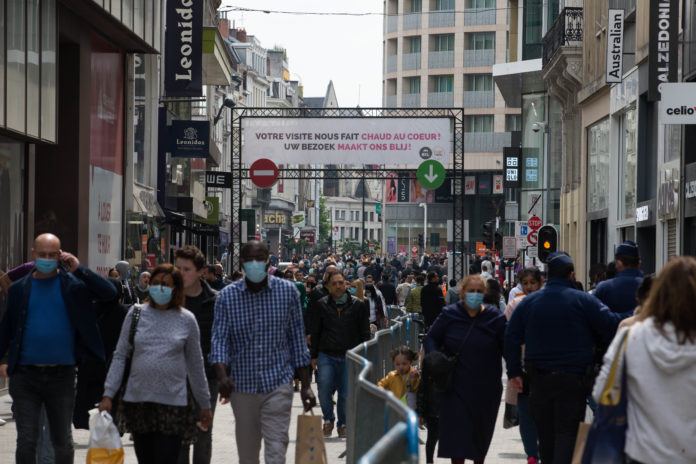Reaching the target set by Belgium's federal government to vaccinate at least 70% of the population will not be enough to get the coronavirus under control, according to several experts.
As more infectious virus variants have emerged and the vaccines do not have a 100% efficacy rate, a higher vaccination rate than initially calculated will be required to reach herd immunity - with many advocating for 80% or even 90%.
"We now know that 70% will not be enough to get the virus under control, so we have to dare to aim higher," epidemiologist Pierre Van Damme (UAntwerpen) told Het Nieuwsblad. "A vaccination rate of 80% should be achievable."
Top American virologist Anthony Fauci, who advises the US government, has already advocated aiming for at least 85% of the population to achieve "true herd immunity."
Related News
- 20% of people in Belgium now have Covid-19 antibodies
- Flanders aims to distribute 100,000 vaccines next week
- Belgium's largest vaccination centre temporarily closes 24h after opening
Immunologist Hans Willem-Snoeck (Columbia University in New York) - who has also repeatedly pleaded to close schools in Belgium - is even aiming for 90%, as it is not (yet) known how long vaccines work.
"If part of the population has been vaccinated and the virus is still circulating in the rest of the population, the virus will have a feast when immunity starts to drop among the vaccinated," he told Humo.
Vaccinologist Corinne Vandermeulen (KU Leuven) would also prefer a vaccination rate of 90%, saying that the same rate was necessary for other vaccines in the past. "70% in the entire population is too little, because then only half of certain population groups might be vaccinated. So you still risk local outbreaks."
Especially among people over 50 years old, Belgium should aim for 90%. "In the younger age groups, 70% may be sufficient, but then you have a permanent risk of outbreaks in this population," Vandermeulen said.
Infection specialist Steven Callens (UZ Gent) called the target percentage "a conservative estimate," adding that a higher rate would provide more safety.
"However, if ultimately only 70% get vaccinated, I am not worried," he told Gazet van Antwerpen. "The virus will continue to circulate in that group of non-vaccinated people, but an infection will make them immune as well."
However, that process will take a lot longer, and the immunity will likely wear off more quickly, according to Callens. "Based on what we know now, we assume an immunity of eight to nine months after infection. After vaccination, it is almost certainly longer."
Maïthé Chini
The Brussels Times

